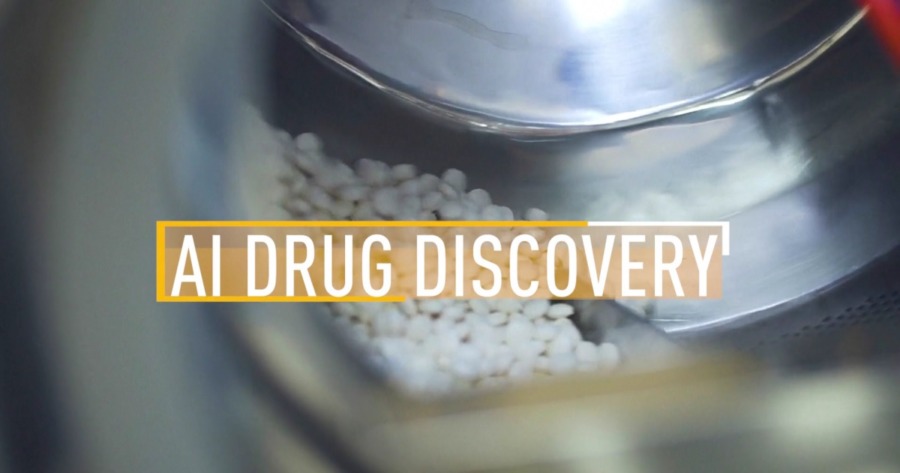The AI Revolution in Drug Discovery: Unlocking the Future of Medicine
- TDS News
- Business
- Technology
- Trending
- October 6, 2023

The journey to develop a single drug to treat a disease has long been an arduous and costly endeavor. Over the years, it has taken decades and cost billions of dollars to bring a new therapeutic to market. However, the drug discovery landscape is rapidly changing, thanks to the power of Artificial Intelligence (AI). In a recent interview with Esteemed journalist Emma Keeling in conversation with Alex Zhavoronkov, the founder and CEO of Insilico Medicine, we explore how AI is revolutionizing the drug discovery process, making it faster, more efficient, and more cost-effective.
Before delving into the impact of AI on drug discovery, it’s crucial to understand the traditional drug development process. Typically, drug discovery begins with disease modelling, where scientists seek to unravel the underlying causes of an illness or disease. The key focus here is identifying protein targets, which are the drivers of disease. These proteins are like the machines in our body, and when they malfunction, diseases occur.
Developing a drug to combat these diseases involves finding a molecule to inhibit or modify the malfunctioning protein. This is akin to finding the right key (drug) to unlock the specific lock (disease-causing protein). However, this process is fraught with challenges, including cross-reactions and unforeseen side effects.
The entry of AI into the field of drug discovery has brought about a seismic shift in the approach. Insilico Medicine, founded in 2014, started as an algorithm company collaborating with pharmaceutical giants. However, it soon transitioned into using its own generative AI to create and discover novel drugs. A deep understanding of the traditional drug development process drove this transformation.
Insilico’s AI-driven approach encompasses all phases of drug development, from target identification to clinical trials. They have broken down this process into three main components:
- Biology 42: This platform efficiently and quickly identifies protein targets, a crucial step in drug discovery.
- Chemistry 42: It generates small molecules with desired properties, facilitating the creation of effective drugs.
- Medicine 42: This component, including InClinico, predicts the outcomes of human clinical trials, enhancing the chances of success.
One of the most significant challenges in drug development is the high failure rate in clinical trials, where over 90% of therapeutics do not make it to market. This is where AI demonstrates its true potential. Insilico’s InClinico, for instance, predicts trial outcomes and identifies weak points in the trial design. This invaluable insight can significantly reduce the failure rate, saving time and resources.
Insilico Medicine has already identified 31 potential drugs using its generative AI systems. Remarkably, they have entered phase two of human clinical trials with a drug discovered and designed by AI, targeting fibrosis, a condition closely associated with aging.
Fibrosis is a scarring process in various tissues due to inflammation or damage. Insilico’s drug, now in phase two trials, specifically targets idiopathic pulmonary fibrosis, a chronic lung scarring disease that leads to irreversible lung function decline. The company’s innovative approach involves an inhalable formula and a novel device for drug administration. Moreover, they believe this compound may hold promise for other forms of fibrosis.
The global reach of AI drug discovery accelerates the development process. Insilico outsources various aspects of drug development to contract research organizations worldwide, focusing on specialized areas such as quantum chemistry and quantum computing. This global approach allows for a more streamlined and efficient pipeline.
Looking ahead, the convergence of AI and quantum computing promises even more remarkable advancements in drug discovery. Quantum computers, known for their immense computing power, are poised to accelerate generative chemistry, making drug development faster and more precise. This development could usher in a new era of drug discovery.
The marriage of AI and drug discovery is transforming the healthcare landscape. With the ability to streamline drug development, reduce costs, and improve success rates in clinical trials, AI-driven drug discovery holds enormous potential for the future. As we continue to harness the power of AI and explore quantum computing’s possibilities, the dream of more affordable and accessible healthcare for all becomes increasingly attainable. The AI revolution in drug discovery is not just about making better drugs; it’s about making healthcare a basic right for everyone.








